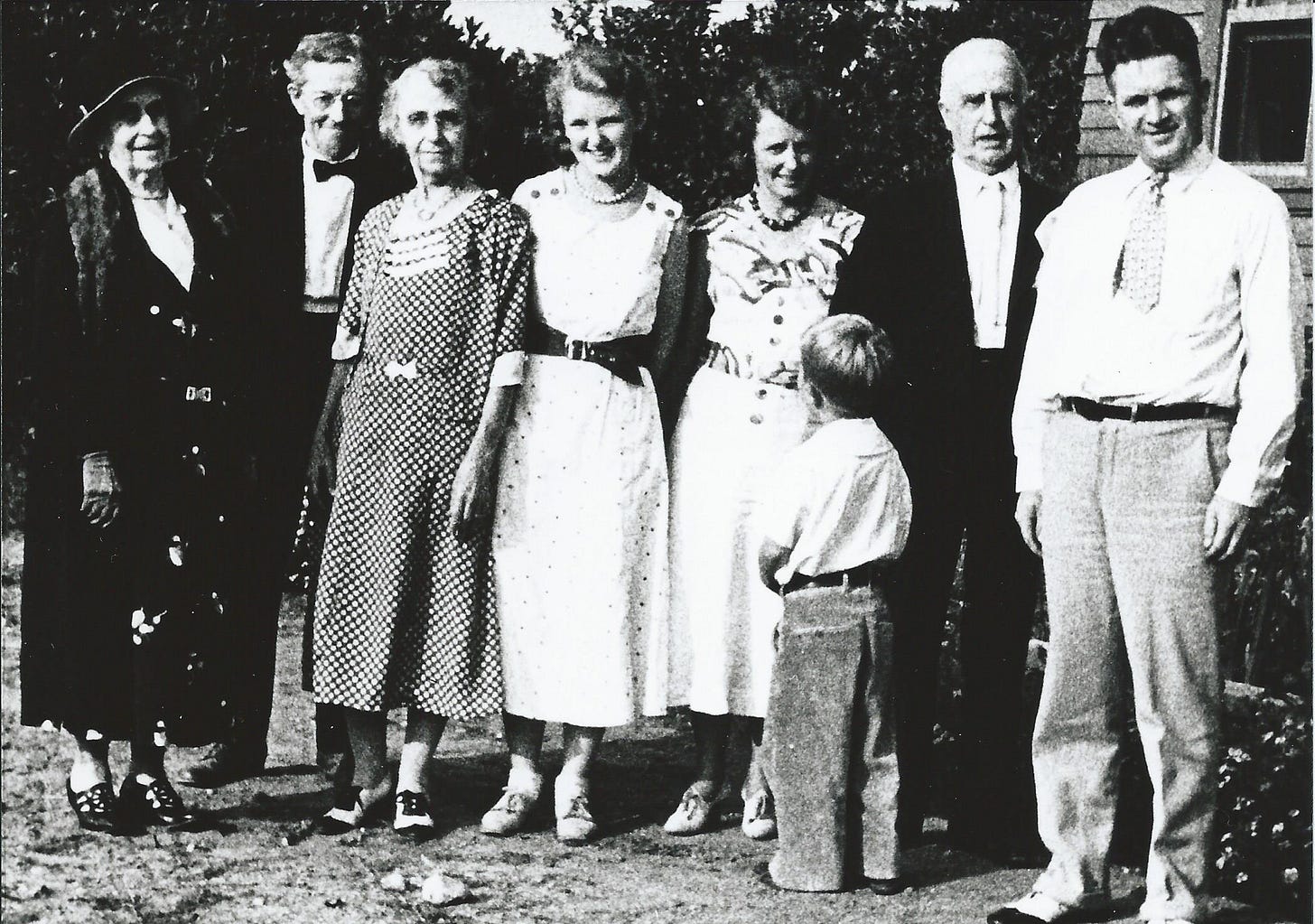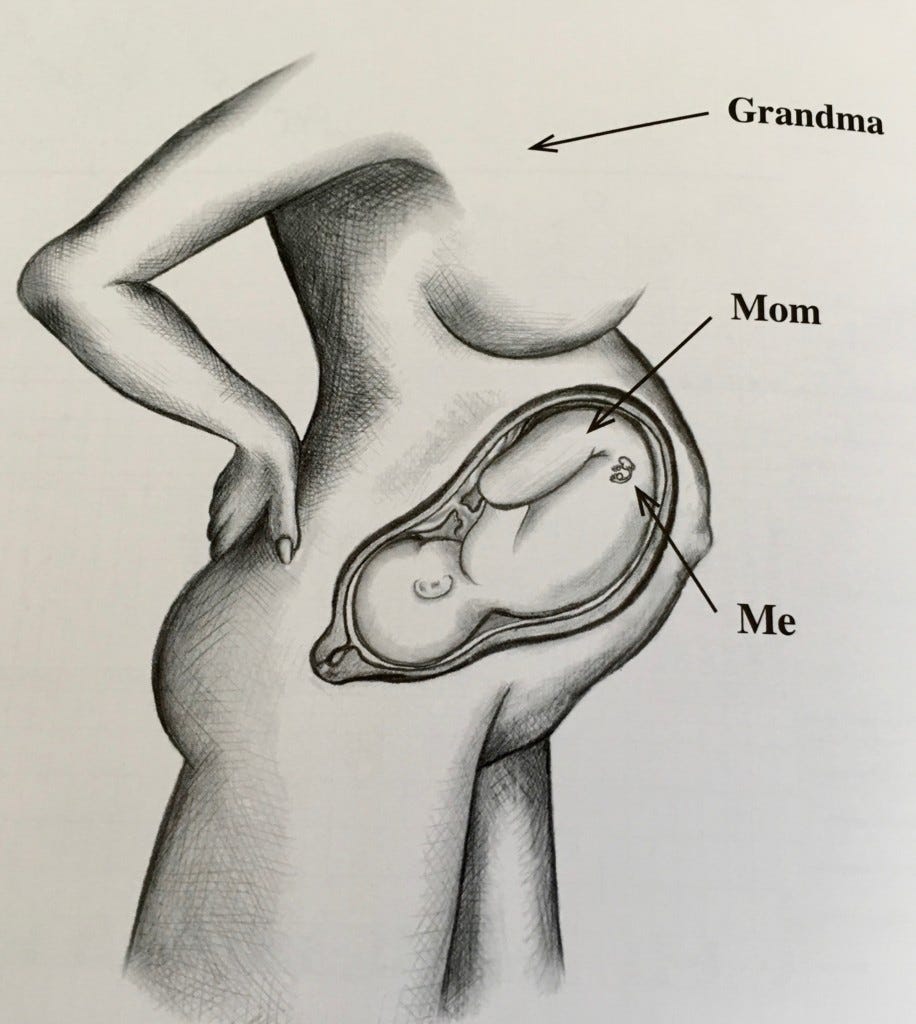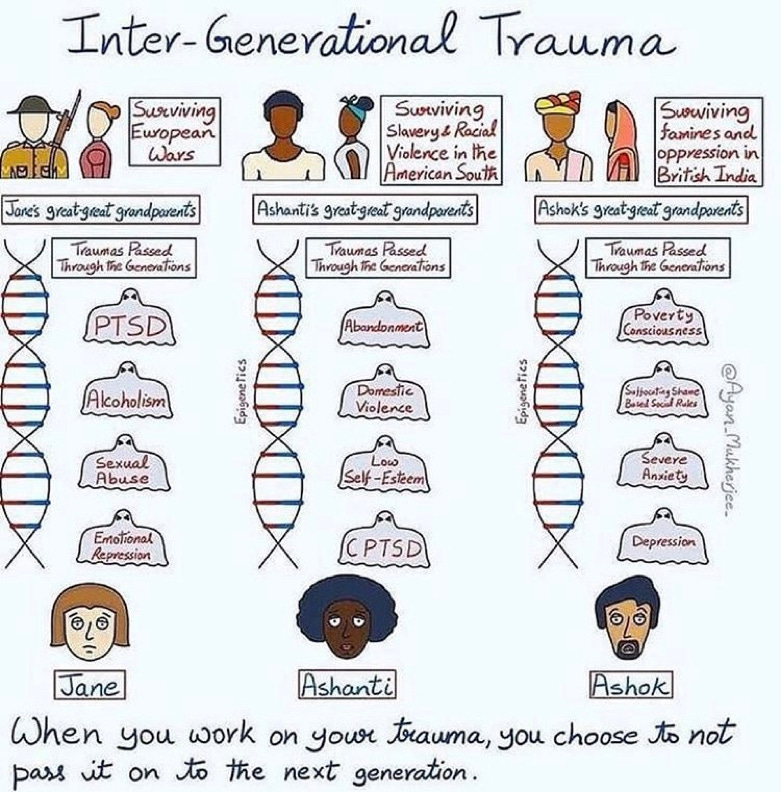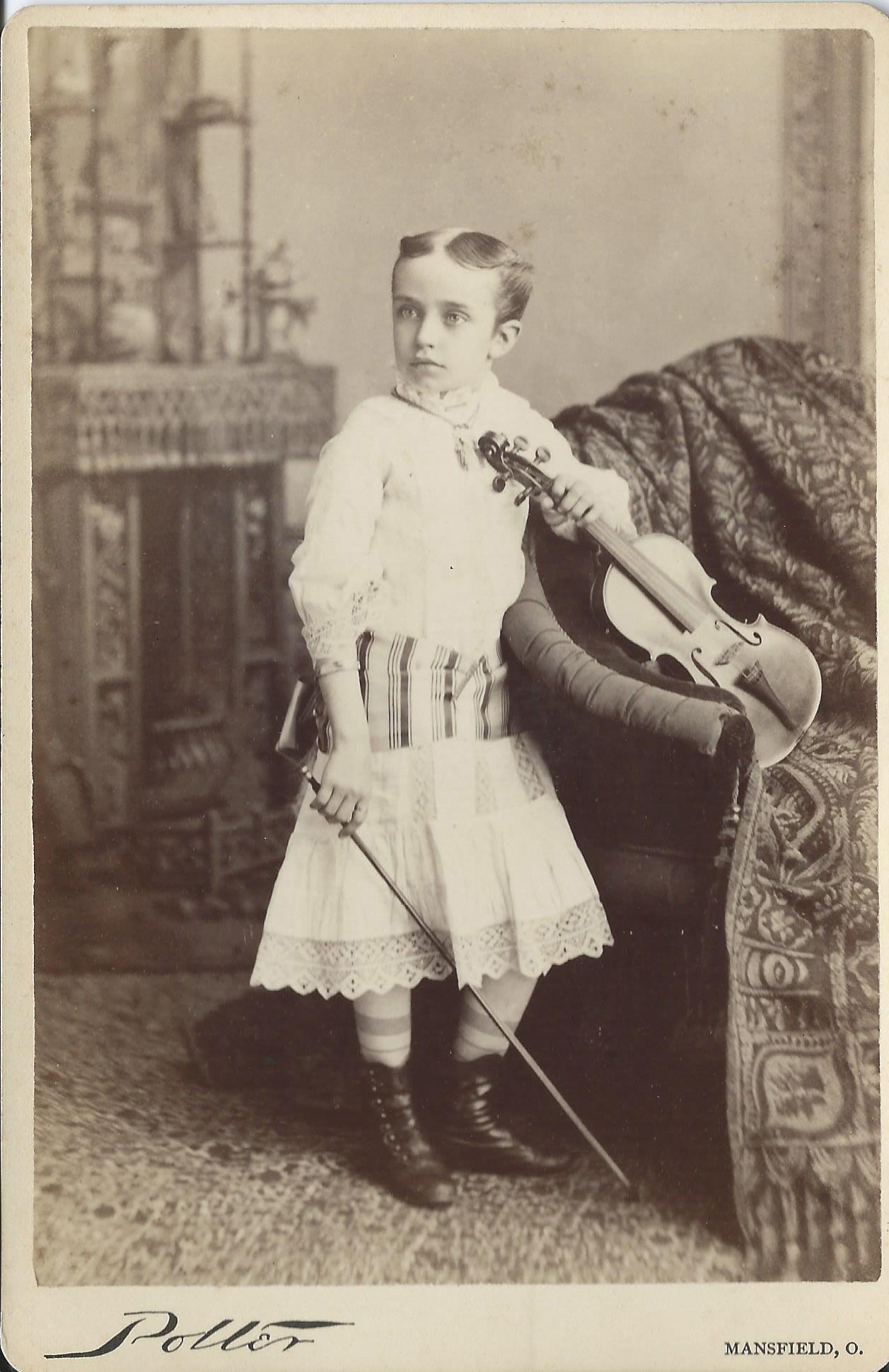How are your ancestors showing up in your life today?
I saw that recently on a TikTok or an Instagram reel, and of course my first reaction was, not at all! I mean, they’re dead. WTH?
But they’re not. DNA is alive and well within me, and so the genetic lines that go back twelve+ generations or more are also inside of me. (Some of us still have Neanderthal DNA.) Who is to say that the thoughts my grandmother had while I was an ovum inside my fetus mother did not affect me?
The whole field of epigenetics is about the inherited trauma from your elders and forebears. I think the graphics here speak for themselves.
How are your ancestors showing up in your life today? Well, in some ways they are the devil(s) on my shoulders. Look at these four generations below me (I am the invisible fifth generation).

Great Grandma Winifred Gaston was a certified snob and church lady. A battleax. Uptight in the most American Victorian way possible—smug and superior about her place in the world. Anxious about sin. White privilege? Yes.
Great Grandpa Gaston/aka Homer Lozier, abandoned in his toddlerhood to an orphanage, then sent by train to strangers, then an adopted child brought up in middle class privilege. He wondered his whole life, Who am I, really? Am I good enough? Winifred lorded her long American lineage (a DAR!) over him. He was a nobody, in her eyes. Yet she married him. WTF?
Grandpa Fred Dew was the son of a brilliant but distant father, JMA Dew, who invented and patented many ideas, and his mother Ann, a “saint.” Although Fred became an engineer and had patents of his own, he forever felt inadequate next to his father. Fred moved to California and bought an orange grove—a dud, that grew oranges too big to sell commercially. (They didn’t fit in the crates or weigh out properly.) He died feeling like a failure. Do I feel that? Sometimes.
Grandma Laura Gaston Dew, his wife, was a gifted violinist, who left her art behind when she married. So much promise. Unfulfilled. Laura’s creativity—being thwarted by societal pressure to marry. Stifled—do I feel that? Yes, yes, I sometimes do.
How are your ancestors showing up in your life today?
I married a guy I barely knew in college to feel safe after SA—it makes no sense, but nothing made sense then. I married a Catholic priest after that, to feel less sinful (don’t ask how that worked). I still struggle with wanting to be a “good girl.” I still want to do things “the right way.” I still want approval and acknowledgement from outside myself to tell me I am worthy.
I have a lot of pent-up rage—at liars and gas-lighters, sociopaths and abusers, and the sneering at my artistic endeavors at achieving something beyond a capitalist existence. My thwarted art and being silenced are two of the outrages that continue to smolder in me. You hear this from me in sharp editorials and blog posts, dark poetry, and general snark. I see it. I hear it. I know it.
AND YET—I really tried to give my daughters the expanse to fly free with their art. One daughter was a dancer, actor, singer. Her theater career in New York, San Francisco and Melbourne are proof that a supported artist can excel. My daughters who preferred to play music (one is heading out on a European tour with her band soon), who preferred to bake (my pastry chef just talked over my book launch cookie idea), who wanted to ride bikes and camp out—their freedom and my support of that freedom has meant everything in breaking the cycle of failures, or in feeling like one. I went to considerable expense and drive time to make sure they got into classes and got the professional training they needed. I believe in them, I learn from them, I trust them, and I always tell them I love them. I hope it was enough. Time will tell.
I had children. My daughters might not. That’s a way to break a curse, a trauma-inheritance.
In this way, I thwart the ancestors who believed they *couldn’t*. I have done So. Much. Therapy. I see what holds me back, I see my weaknesses, and I’m working on them, constantly. That’s an inheritance I hope my offspring will carry forward. Therapy is a good thing. I know there’s still rage and hurt feelings. We work on it. We take baby steps.
All of this is so negative. I mean, I didn’t start out to write a post about how shitty my ancestors were. (We’re all shitty in our own special ways!) ← snark! I’m here because my foremothers survived—their shitty husbands, their crippling social expectations, the many rules and laws that kept them from freedom and choice. My forefathers put bread on the table, traveled across continents and voyaged oceans to get us to where we are today. They survived, too.
How are your ancestors showing up in your life today?
I, too, am a workaholic1. I, too, dissociate when the shit hits the fan. (I learned that to survive.) But also: I survive. I am telling the stories. I am breaking the old bonds, which, in fact, builds new bonds moving forward. I am telling these stories, searching with binoculars and a microscope, for traces of hope, to see it all. To see what lies behind. To remake what lies ahead. We stand on their shoulders, even if we don’t want to.
I swear, I’m trying. I swear, these stories will be worth it. The ancestors won’t let me rest. They are peering over my shoulder as we speak.
The painful legacy of the Puritans, the Protestant Work Ethic, the dissociation we needed to survive. Stay busy, and you won’t feel a thing.





I don't know as much about my ancestors as you do. But I feel the weight of them, the generations of abuse, trauma, and bigotry on my back.
Sometimes I can forget it's there. Other times, it feels heavy enough to crush me. But the one thing I've always, ALWAYS understood is: I'm the only one standing between ALL OF THEM and my children & grandchildren.
I won't let them get through.
Julia, I'm reading, "The Bereaved" right now. Riveting.